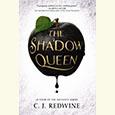Scrappy Survivors
Claire Jimenez’s debut story collection packs a punch
Often called the “forgotten borough,” Staten Island is known more for the free ferry that connects it to Lower Manhattan than for any of its landmarks. But the debut story collection by Claire Jimenez, Staten Island Stories, aims to change that. Her collection of bawdy tales of the working-class people who populate the island has an unexpected quality that made me want to learn more about the least populated — and perhaps least understood — borough in New York.
 I’m not sure if it was the fact that Claire Jimenez’s name is a little bit like mine, or that I thought that she was going to resemble a younger version of myself and that made me a tiny bit jealous — whatever it was, it took me some time to crack open the book. But once I did, I was hooked.
I’m not sure if it was the fact that Claire Jimenez’s name is a little bit like mine, or that I thought that she was going to resemble a younger version of myself and that made me a tiny bit jealous — whatever it was, it took me some time to crack open the book. But once I did, I was hooked.
The first story in the collection, “The Tale of an Angry Adjunct,” is a deliciously bittersweet opener. It has everything I look for in a short story: a warm and relatable voice, a connection to my life but also to the wider world around me, and even a gratifying allusion to our current tumultuous moment, wrapped in a commuter’s homeward journey after a long day:
At night, the last S62 leaving CSI was usually loaded with students from everywhere: Brooklyn, the Bronx, Queens, the North Shore. And their families were from Sri Lanka, Ukraine, Nigeria, the Dominican Republic, Palestine, Mexico. There were kids from India, Albania, Haiti, and Jamaica. From Algeria, Egypt, and Morocco … And all of us masses tired, huddled on the 9:00 p.m. bus darting home through the black rain.
Jimenez is a graduate of the Vanderbilt University M.F.A. program, and her writing conveys a polished quality that belies her youth and conveys a deeply accurate, if jaundiced, view of academic life. But she also gives us a view into the world of working-class Americans from a city rife with tensions — social, political, and racial — and navigates those arenas just as beautifully.
 In the haunting story “Do Now,” the only one not told through first-person narrative, Jimenez draws us into the painful tale of a not-yet-cynical young fifth-grade teacher who struggles to find her authority in the classroom (and in life) without losing sight of her emotional anchors — her students. Using the second person, the voice at times admonishing and other times rueful, the narrator addresses herself from sometime in the future: “Today, during class, when you wrote on the board, you tilted the chalk against the wall at an uncertain angle.” This immediately draws us into the narrative and implicates the reader in the reflective process, exposing the shame that comes from an enduring feeling of not belonging. “Teaching is performance,” the narrator is told by her older, male principal.
In the haunting story “Do Now,” the only one not told through first-person narrative, Jimenez draws us into the painful tale of a not-yet-cynical young fifth-grade teacher who struggles to find her authority in the classroom (and in life) without losing sight of her emotional anchors — her students. Using the second person, the voice at times admonishing and other times rueful, the narrator addresses herself from sometime in the future: “Today, during class, when you wrote on the board, you tilted the chalk against the wall at an uncertain angle.” This immediately draws us into the narrative and implicates the reader in the reflective process, exposing the shame that comes from an enduring feeling of not belonging. “Teaching is performance,” the narrator is told by her older, male principal.
And, in an effort to slough off the day and the awkward classroom observation, Miranda, the narrator, goes out for a drink with a longtime friend but is unable to find solace in their conversation: “You pretend to laugh, but even beneath your laughter, you feel as if you are irredeemably wrong, as if your body is a puzzle piece with one side that the universe has bitten off.” The story, like the entire collection, packs a punch that does not let up from the opening paragraph to the last.
I related to so many of the characters in these stories, like the uninspired 37-year-old Dolores in “You Are a Strange Imitation of a Woman,” working in an unfulfilling office job with a younger manager who makes $15,000 more than her. Or the two friends, Toni and Lisa, in “Great Kills,” (a play on Fresh Kills, the infamous Staten Island landfill), who reluctantly attend a high school reunion during which they successfully stop a would-be gunman from a planned attack on the partygoers: “You can say whatever you want about people like me and Lisa, but what a lot of folks don’t realize is that when you’ve gone through the things that we’ve gone through, it makes you scrappy in ways that a lot of other people are not.”
There is a grittiness, yes, but also a hopefulness to these Staten Island Stories, as Jimenez’s tough but compassionate voice supports us through the struggles of fully human characters living through the problems of addiction, racism, poverty, and neglect. But, despite the odds, I get the sense that these Staten Islanders will not just survive, but thrive. I am grateful for the chance to get to know them.

Joy Ramirez holds a Ph.D. in comparative literature. She taught Italian at Vanderbilt University and the Colorado College. She now writes and lives in East Nashville.


